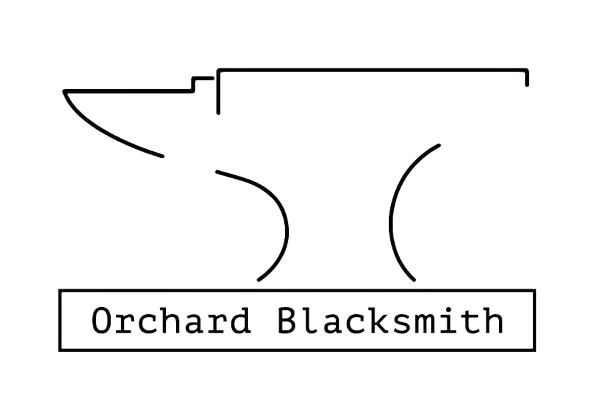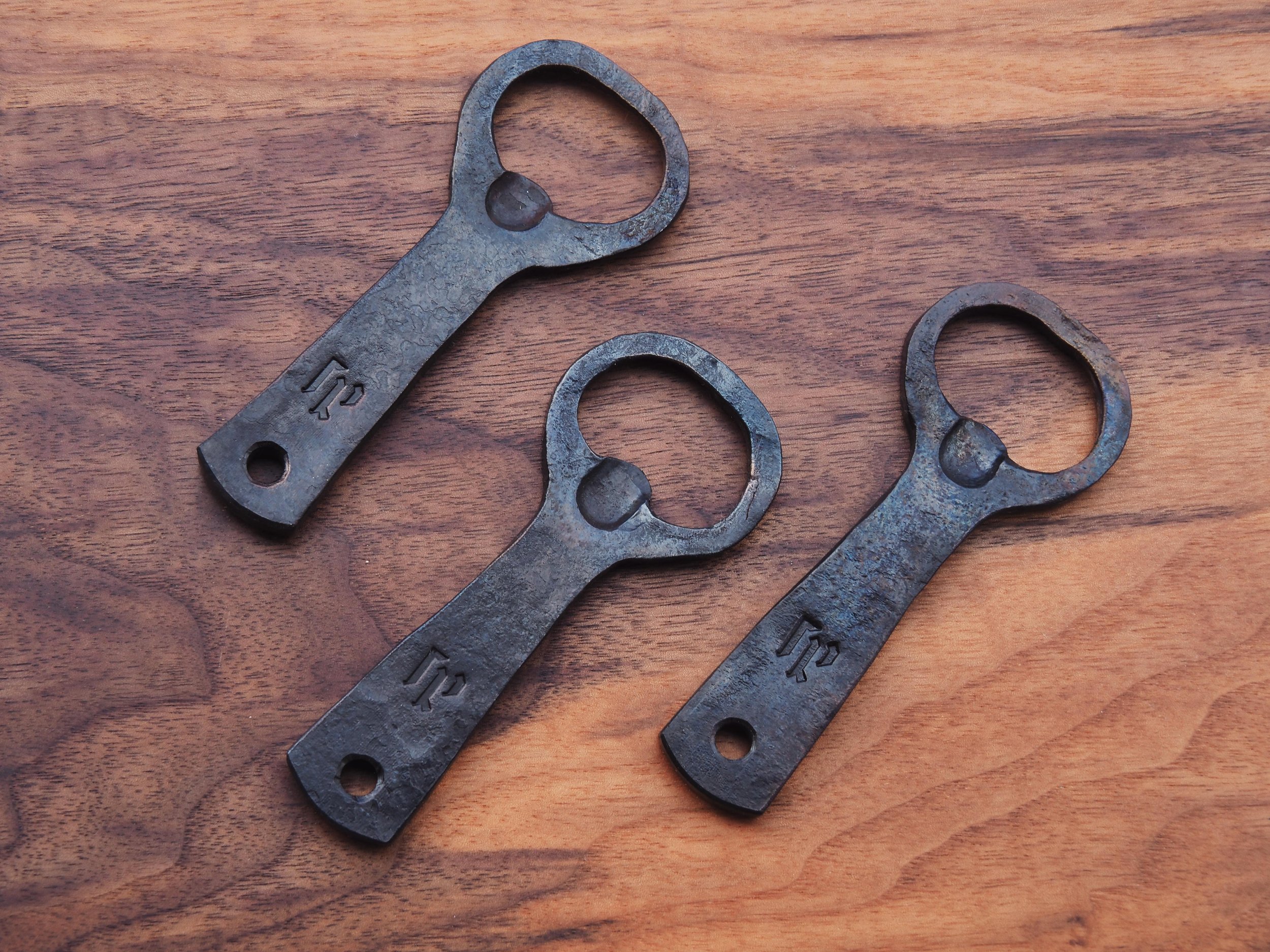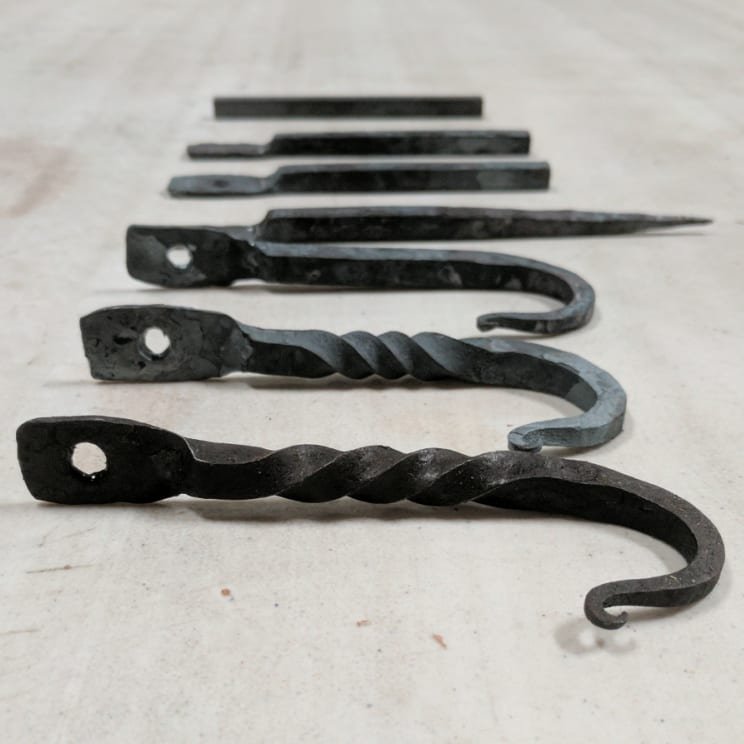Forge Smarter: Projects That Teach Core Blacksmithing Techniques
When you're new to blacksmithing, it’s tempting to jump straight into making knives, swords, or big decorative pieces. But the best way to build solid skills is to start with small, purposeful projects that focus on technique.
Here are five beginner-friendly projects that not only look cool when you’re done—but also teach you fundamental blacksmithing skills you’ll use for years.
1. The Classic S-Hook
Skills Learned: Tapering, bending, scrolling, hammer control
This is the blacksmith's go-to starter project. It teaches you how to draw out a taper, make smooth curves, and understand heat control. Plus, it’s actually useful—you can hang tools, keys, or even sell them as simple craft items.
2. Bottle Opener
Skills Learned: Punching, twisting, shaping, finishing
Everyone loves a hand-forged bottle opener. It introduces you to hot punching (or drilling if you start cold), shaping a functional end, and doing some decorative twists. You also get instant feedback on how well your design actually works.
3. Wall Hook / Coat Hook
Skills Learned: Flattening, curling, hole punching, mounting design
This builds off the S-hook but adds practical design skills like making a mounting plate and planning hole spacing. It's a perfect intro to functional ironwork you can install in your own shop or home.
4. Centre Punch or Cold Chisel
Skills Learned: Working with tool steel, heat treating, hardening, tempering
This project teaches you the basics of tool making. Using something like 5160 or another hardenable steel, you’ll learn how to heat treat properly—an essential skill if you ever want to get into blade smithing.
5. Railroad Spike Knife (Once You’re Comfortable)
Skills Learned: Forging bevels, shaping blades, grinding, basic heat treat
It’s not the best steel for a high-performance knife, but it’s a fun introduction to blade smithing. Forging a spike into a recognizable blade helps develop hammer control and blade symmetry without needing perfect steel or technique.
Final Tip: Practice Beats Perfection
Don’t stress if your first projects come out a little rough. The point isn’t to make flawless items—it’s to build muscle memory, heat awareness, and tool confidence. These foundational projects will give you everything you need to tackle more advanced work down the road.




